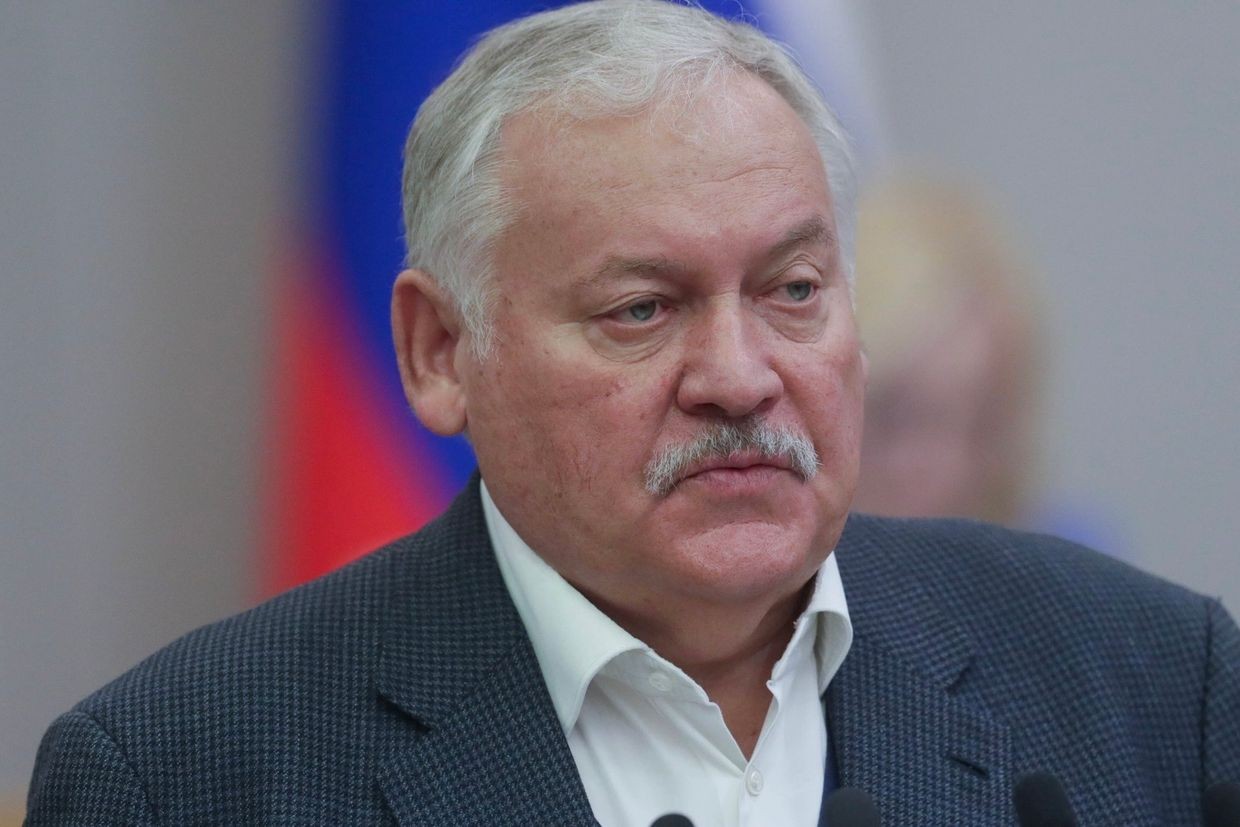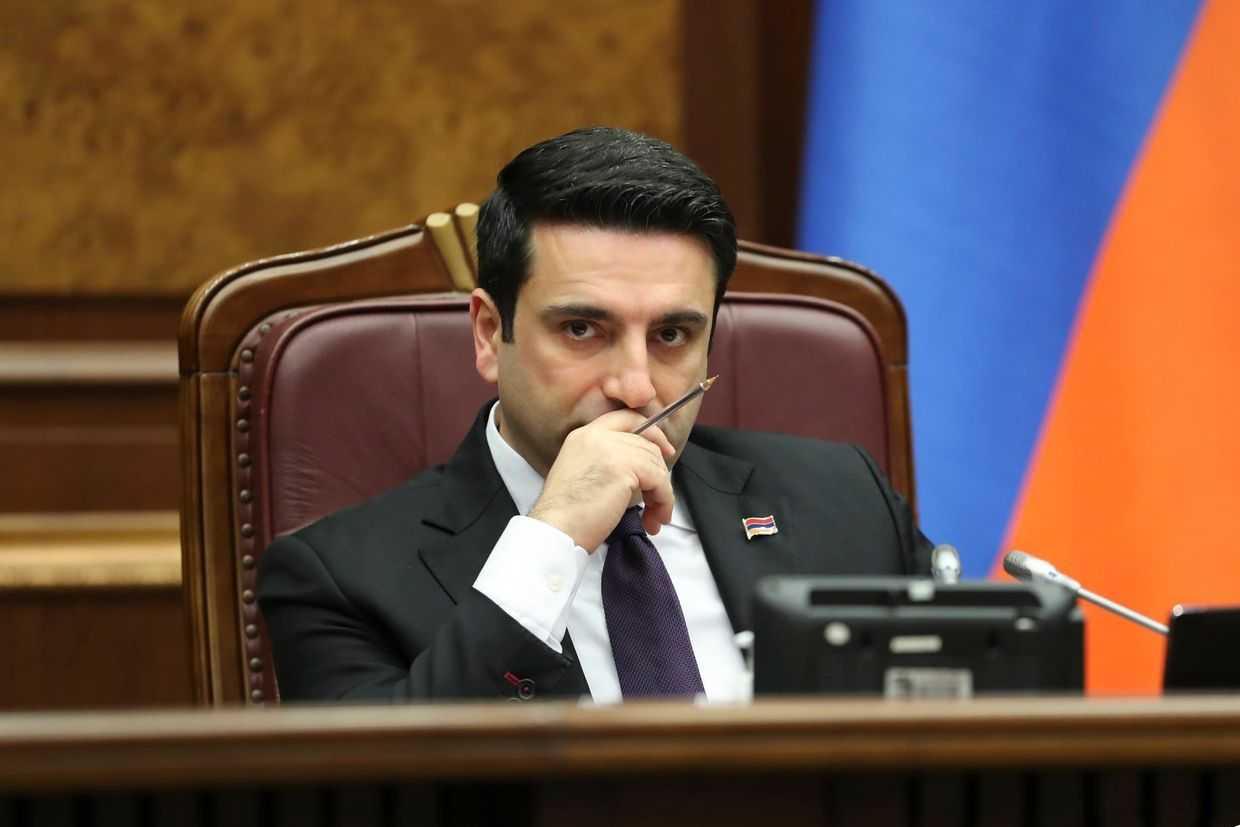Russian MP speaks in defence of Nagorno-Karabakh officials detained in Azerbaijan

As the Foreign Ministers of Armenia and Russia held talks in Moscow, a Russian MP made a rare pro-Armenian statement regarding the ongoing trial of former officials and other representatives of Nagorno-Karabakh in Azerbaijan, while also labelling Armenian Prime Minister Nikol Pashinyan the ‘main culprit in their betrayal’.
On Tuesday, Konstantin Zatulin, the first Deputy Chair of the Russian State Duma Committee on CIS Affairs and Relations with Compatriots, called Azerbaijan’s persecution of Nagorno-Karabakh’s former leaders and representatives a ‘show’, and an ‘act of personal revenge on the part of Azerbaijani President Ilham Aliyev’.
Zatulin called ex-presidents Arkady Ghukasyan and Bako Sahakyan his ‘friends’ and sarcastically said that Nagorno-Karabakh Armenians were fleeing ‘from the prospects of a heavenly life in Azerbaijan’.
He also expressed his agreement with the Armenians’ comparison of the Nagorno-Karabakh exodus in September 2023 with the Armenian Genocide.
He called Pashinyan ‘the main culprit in the betrayal of the Armenians of Nagorno-Karabakh’, saying that he had ‘abandoned them as a result of a conspiracy’ and ‘did not lift a finger to secure their release’.
Additionally, Zatulin admitted Russia’s failed role in Nagorno-Karabakh.
‘To our deep regret, the shadow of the story with the tragedy of Nagorno-Karabakh and its leaders falls on us in Russia, which was deceived with its peacekeeping operation’, Zatulin said, adding that Pashinyan ‘is taking advantage of this today. It is shameful’.
Zatulin’s remarks were among the few, if any, pro-Armenian statements to have come from Russian officials over the Nagorno-Karabakh issue in recent years. It came as Armenian Foreign Minister Ararat Mirzoyan and his Russian counterpart, Sergey Lavrov, held talks in Moscow.
Before the meeting, Lavrov admitted that bilateral relations between Armenia and Russia were ‘not without difficulties’, but said that ‘dialogue continues’.
On Wednesday, the Lazarev Club, an informal platform created to sponsor meetings between Russian and Armenian figures, demanded ‘an immediate end to the trial, the release from custody of all Armenian prisoners held in Baku dungeons and the removal of all illegal charges against them’.
They expressed their ‘strong protest in connection with the illegal trial’, stating that charges against the detained officials were ‘fabricated in advance, the trial is clearly politicised, and the sessions are held behind closed doors from independent media in order to hide the truth from the world community’.
The Lazarev Club’s statement pointed to the recent Azerbaijan Airlines plane crash, criticising Baku for blaming Moscow for the incident.
‘We all remember how the Azerbaijani armed forces shot down a Russian helicopter in 2020, and in 2023, during another aggression of Azerbaijan against Nagorno-Karabakh, Russian peacekeepers were killed as a result of an attack by the Azerbaijani military’, the club said, adding that Azerbaijan ‘got off with an apology, but neither the names of the perpetrators were announced, nor their punishment, nor assistance to the families of the killed servicemen from the Azerbaijani side followed’.
‘Candid discussion’ and ‘mutually acceptable solutions’
The meeting between Lavrov and Mirzoyan came shortly after Armenia and the US signed a Strategic Partnership Charter and the Armenian government backed a draft law announcing the beginning of the process of joining the EU, leading to a swift and sarcastic reaction from Russia.
In a joint press conference on Tuesday, Mirzoyan noted that the preparations for his visit ‘have been ongoing for almost three months’, and were postponed multiple times ‘due to technical reasons’.
Mirzoyan also noted the ‘need to continue inter-[Foreign Ministries] consultations’, and stated that they discussed the current situation in the media space and ‘ways to create a more favourable information environment’.
Last week, the Armenian Foreign Ministry handed a letter of protest to Russia’s Ambassador in Armenia concerning a programme aired on Russia’s state-run TV outlet, in which statements were made against Armenia’s sovereignty and territorial integrity.
Mirzoyan also expressed hope that in the future, ‘the Russian side will take into account all components of what is happening, by avoiding unilateral comments, which, regrettably, we saw recently’.
Asked about the impossibility of Armenia maintaining its Eurasian Economic Union (EAEU) membership status in case it joins the EU, Mirzoyan said that ‘if such an issue emerges then, probably, we must understand what to do’.
In his turn, Lavrov noted that they had a ‘candid discussion’ which covered ‘nearly the full scope of our relations’, and ‘managed to reach mutually acceptable solutions with regard to a number of issues’.
‘I am sure that this exchange of views will contribute to the settlement of certain recent issues in our relations’, Lavrov said, adding that both sides were ‘in favour of expanding ties’ and ‘want bilateral relations to be resistant to any momentary influence’.
Lavrov mentioned a list of issues they discussed, including cooperation within the EAEU, normalising Armenian–Azerbaijani relations, and ‘reaffirmed’ their ‘invariable readiness’ to assist ‘in all aspects of this normalisation’.
He disagreed with a question suggesting that Russia’s stance was often in accord with Azerbaijan and that it coincided with its approaches.
‘We are deeply interested in our brothers living in peace as good neighbours. [...] Unlike certain countries located far away from the South Caucasus that promote a completely different agenda aimed at maintaining tension here as long as possible, expecting to use it to promote their geostrategic interests more effectively’, Lavrov said.
However, a recent analysis of the Atlantic Council’s DFRLab suggested that the ‘leaders from Russia and Azerbaijan often promote closely aligned, and at times identical, narratives hostile to Armenia’s efforts to improve relations with the European Union’.









